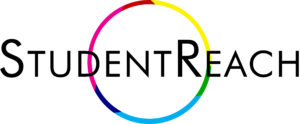These Shocking Results Were No Surprise To Us – Sept 21, 2015
“When we first saw these effects, we thought, wow, can this be right?” said Sara Heller, a University of Chicago researcher. She was speaking on the Freakonomics Podcast on September 9th.
”In the first year, we saw a 44% drop in violent crime arrests and a 36% decrease in non-violent crime arrests and an increased school involvement that is predicted will lead to a possible 22% increase in graduation rates.”
In 2013, the state and city governments asked the University of Chicago to conduct randomized, double-bind research into what, if any, of their crime reduction and success promotion programs in the Chicago public school system were actually working. Some of those programs included mentoring, job training and even direct payments for scholastic achievement.
The results: almost no measurable reduction in arrests and no measurable increase in scholastic achievement.
No measurable results from any approach except one: group coaching.
The kind of coaching that sought to do something previously thought to be almost impossible – changing behavioral patterns through cognitive process assessment. In other words, setting up scenarios and getting students to discuss and evaluate their automatic response and other possible responses that might result in better outcomes. The groups almost bear a resemblance to cognitive behavioral therapy – an approach to therapy that focusses on behavioral change through self-examination and discussion. CBT has been shown to be successful with treating depression, addiction and other difficult problems, but that a version of this approach by non-therapists could be that effective was a result that was unexpected.
 It wasn’t unexpected to our team of coaches. For over 3 years, StudentReach has been using that approach with groups as varied as leadership students, continuation school students, gang-affiliated young men, Afghan and Somali refugees, and homeless students. Combining weekly group discussions and coaching with other relational activities has been an amazing way to reach some of the most difficult and seemingly unreachable students.
It wasn’t unexpected to our team of coaches. For over 3 years, StudentReach has been using that approach with groups as varied as leadership students, continuation school students, gang-affiliated young men, Afghan and Somali refugees, and homeless students. Combining weekly group discussions and coaching with other relational activities has been an amazing way to reach some of the most difficult and seemingly unreachable students.
One of the most surprising results of the study was that with programs ranging in cost as high as $15,000 per student per year, the group coaching/CBT model was the cheapest by far – about $1100 per student.
StudentReach has presented school assemblies to over 1,000,000 students and taken over 5,000 on summer volunteering trips, but when we decided to start coaching students in small settings of 5-10, we were surprised at how effective it really was and how rewarding seeing real change in the lives of these students really was.
To listen to the Freakonomics podcast, go to freakonomics.com
To learn more about ALIVE coaching on our Student Coaching page.


